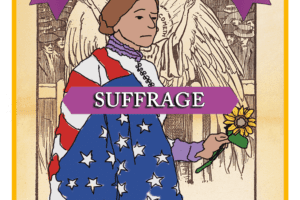Emmeline Pankhurst: A Pioneering Force for Women’s Rights
Emmeline Pankhurst, a name synonymous with the suffrage movement and the fight for women’s rights, remains a beacon of inspiration for generations. Born on July 15, 1858, in Manchester, England, she dedicated her life to advocating for women’s suffrage and equality. Pankhurst’s relentless determination and unwavering courage played a pivotal role in shaping the trajectory of the suffragette movement in the early 20th century.
Early Life and Background
Emmeline Pankhurst was born into a family committed to social justice and equality. Her parents, Robert and Sophia Goulden, were political activists who advocated for women’s suffrage and education. Growing up in this environment undoubtedly influenced Pankhurst’s future endeavors and passion for activism.
Emmeline married Richard Pankhurst, a lawyer and advocate for women’s rights, in 1879. The couple had five children, and through her personal experiences as a wife and mother, Pankhurst became acutely aware of the inequalities women faced in a patriarchal society.
The Suffragette Movement
Emmeline Pankhurst founded the Women’s Social and Political Union (WSPU) in 1903. This organization became the driving force behind the suffragette movement, a militant branch of the broader suffrage movement in the United Kingdom. The WSPU adopted more radical tactics, which included public protests, civil disobedience, and hunger strikes, to demand women’s right to vote.
Pankhurst and the suffragettes faced significant opposition from both society and the government. They were met with arrests, imprisonments, and force-feeding during hunger strikes. Despite the obstacles, their resilience and unwavering commitment to their cause garnered significant public attention and support.
“Deeds, Not Words”
One of Emmeline Pankhurst’s famous slogans, “Deeds, Not Words,” encapsulated the suffragette movement’s spirit. Pankhurst and her fellow suffragettes believed that direct action and protests were necessary to achieve their goals. They engaged in acts of civil disobedience, vandalizing property, and interrupting political events to draw attention to the cause and pressure the government for change.
Impact and Legacy
Emmeline Pankhurst’s efforts and leadership had a profound impact on the suffrage movement and women’s rights. Her determination and bravery ultimately led to the passage of the Representation of the People Act in 1918, granting certain women in the UK the right to vote. This was a monumental victory, and it marked the beginning of a broader movement for women’s suffrage worldwide.
Pankhurst’s legacy continues to inspire people advocating for gender equality and social justice. Her life’s work reminds us of the power of conviction, courage, and determination in the face of adversity.
Conclusion
Emmeline Pankhurst’s relentless dedication to the cause of women’s suffrage changed the course of history. Through her unwavering commitment and fearless actions, she left an indelible mark on the fight for gender equality. Pankhurst’s life serves as a reminder that ordinary individuals can ignite extraordinary change when they stand up for what they believe is right. Her legacy continues to resonate and inspire generations of activists working towards a more just and equal world for all.
Share via:



